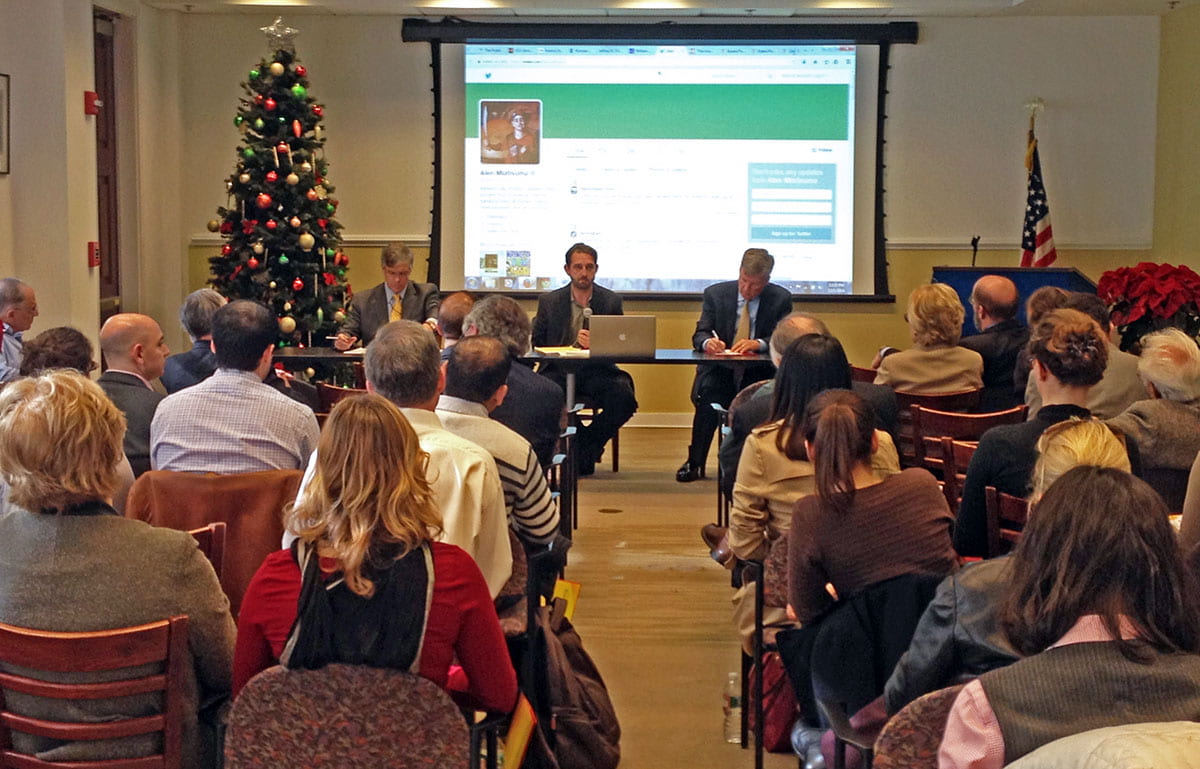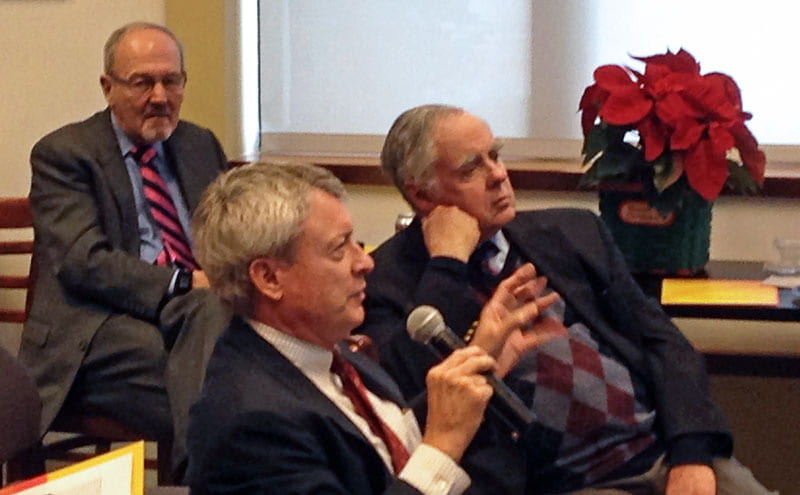WASHINGTON – New initiatives by U.S. international broadcasting to counter Russian propaganda were the focus of this month’s CCLP Washington Communication Leadership forum here yesterday.
Jeffrey Trimble, Deputy Director of the U.S. International Broadcasting Bureau, said the innovations are in response to what he called Russia’s “weaponization” of international news and information.

Left to right: Jeffrey N. Trimble, Deputy Director of the U.S. International Broadcasting Bureau; Alen Mlatisuma, Internet Managing Editor, Voice of America Eurasia Divisision; and William Harrison Courtney, former U.S. ambassador and Executive Director, RAND Business Leaders Forum.
One of the new ventures described by Trimble is “Current Time,” a new 30-minute daily television newscast co-anchored in Washington and Prague. The first ever co-production of Voice of America and Radio Free Europe/Radio Liberty, Trimble said it was the suggestion of Richard Stengel, the new Under Secretary of State for Public Diplomacy and Public Affairs.
Broadcast locally in countries including the Ukraine, Georgia and Moldova, it is also streamed on line, at http://www.currenttime.tv/, when stations in Europe are broadcasting it – early afternoon in Washington.
Russian-language programming is a growth business for the U.S., according to Trimble, who said it was welcomed by broadcasters along Russia’s western border.
“We asked them, ‘Are you okay with our doing more Russian-language programs?'” noted Trimble, “And they said, ‘Absolutely, to help us communicate with our ethnic minorities.'”
One of the most popular new broadcast formats are short-form five-minute news programs that local broadcasters in Eastern Europe and central Asia can then drop into their existing programs. For example, new Russian-language programming is the first U.S. programming ever to be broadcast on local stations in Kazakhstan.
Kazakhstan broadcasters need “more reporters and more commercial ties” – for example with CNN – to improve coverage, according to another speaker, William Harrison Courtney, former U.S. ambassador to Kazakhstan and to Georgia and executive director of the RAND Business Leaders Forum.

Former Voice of America director David Jackson asks a question. Also shown: Ambassadors Brian Carlson and Tony Quainton.
The third panelist, Alen Mlatisuma, Internet Managing Editor of the Voice of America Eurasia Division, described Russia’s goal with its broadcasts in the Balkans as, “Let’s mess up.”
Russian programming is designed to confuse audiences and to make them believe that closer ties to Western Europe can only make their lives worse, according to Mlatisuma. But in part because of the increase in Russian propaganda, just as in Kazakhstan, Balkan countries now welcome U.S. international broadcasts.
“We have access to TV in the Balkans,” said Mlatisuma.
These new programs have been started with only a small investment of U.S. government funds, and Trimble said the U.S. does not have the resources to match RT, Russia’s 24-hour TV networks. (You can see RT English on line at http://rt.com/on-air/ and RT’s free video-on-demand hub at http://ruptly.tv/) So the U.S. is pursuing what Trimble described as ‘raindrops,’ using inexpensive social media and web sites to reach people along Russia’s Western border.
These include a live blog on the Ukraine crisis and an “instant Russian-language” web site that uses Google Translate to produce reporting in Russian.
The U.S. has also launched a web site covering news in Crimea, in Tatar, Russian and Ukrainian, and Trimble said it is already attracting a large audience. But he added that Crimea has become “a very difficult reporting environment” since the Russian invasion.
Monday’s CCLP Washington Communication Leadership forum was part of a monthly series of lunch forums presented in partnership with the USC Center on Public Diplomacy and the Public Diplomacy Council.
For more coverage of this forum, see also the BBG’s published story.